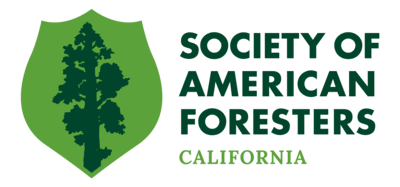NATIONAL CONVENTION FEATURES FIELD TOURS, SPEAKERS, GEN Z INPUT
For Immediate Release Sacramento, CA October 19, 2023
Hundreds of leading professionals from across the United States will descend upon Sacramento next week to attend the 2023 Convention of the Society of American Foresters (SAF). Interested members of the media are invited to meet and interact with diverse forestry experts but also with student leaders eager to share Millennial/Gen Z perspectives on today’s natural resource management challenges and why they are studying to enter the field.
Speakers include Dawn Blake, the first Native American appointed to serve on the state’s Board of Forestry and Fire Protection as well as USDA Forest Service Chief Randy Moore. Blake is a Hoopa Tribal member and a Yurok descendant. She will participate in a Plenary Session titled “Indigenizing Forestry at its Roots.” Moore heads up a federal agency entrusted with overseeing 193 million acres – a land area almost twice the size of California.
Besides presentations, booths and social events, participants can choose to attend field tours, including scheduled visits to the 2021 unprecedented trans-Sierra Caldor megafire, an operating sawmill/biomass power plant, U.C. Berkeley’s Blodgett Forest Research Station, and several others.
More information is available at: safconvention.org.
Hosting this year’s SAF Convention is the California State Society (Cal SAF). The group has recently produced two far-reaching policy statements responding to the megafire crisis and the plight of the state’s iconic giant sequoia trees.
The referenced policy statements, Sustaining native giant sequoia groves requires active, adaptive management and Forestry Solutions to California’s Wildfire Crisis are posted on the Cal SAF website, https://californiasaf.org/policy/.
For More Information please contact:
Bill Keye, Cal SAF Communications Chair, wwkeye@gmail.com, (530) 355-0670.
The California Society of American Foresters
Cal SAF is a State Society of the Society of American Foresters (SAF). SAF is a professional association with headquarters in Washington, DC. The Society is organized across the United States and Canada, serving as an accreditation and research body representing all segments of the forestry profession; including public and private practitioners, administrators, educators, and forestry students. SAF governs a majority of the political and scientific topics at the national level, which allows each jurisdiction to represent itself independently, guided by SAF’s Mission and Code of Ethics.

